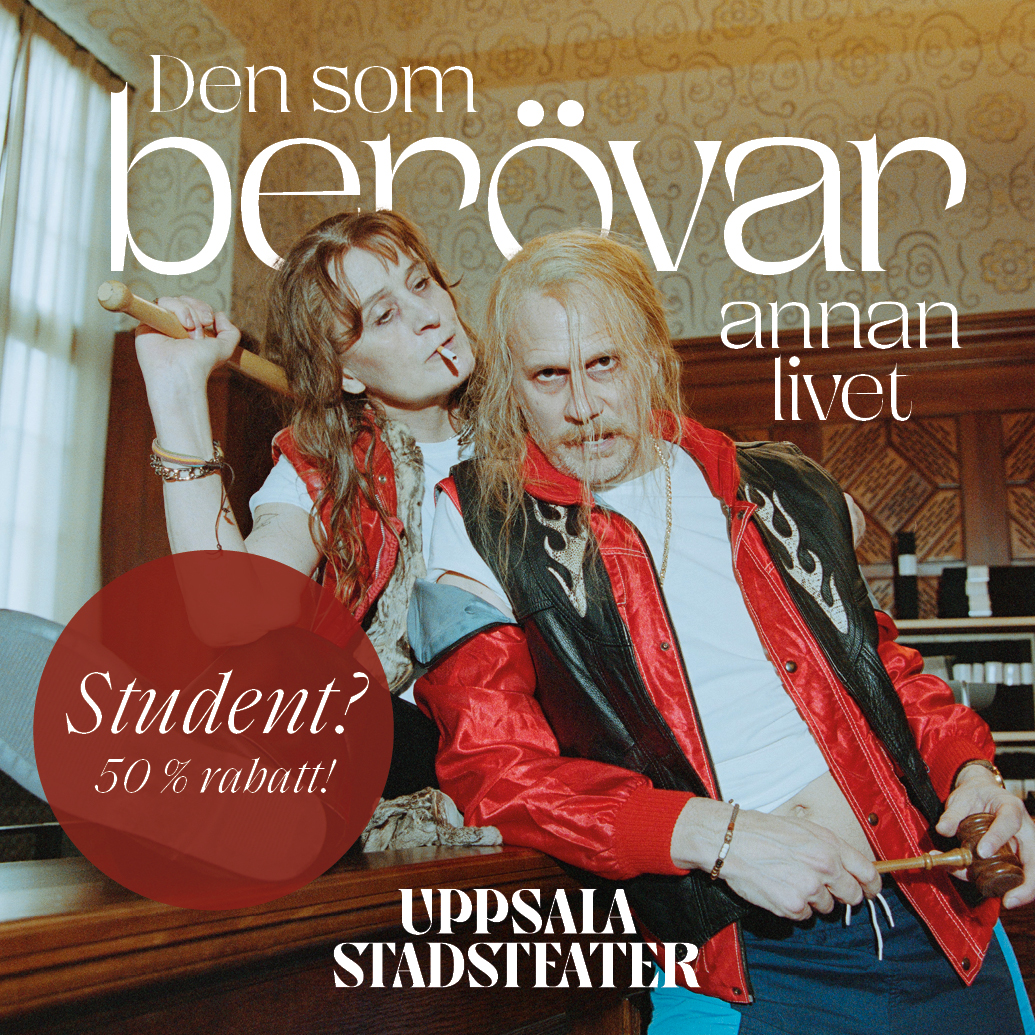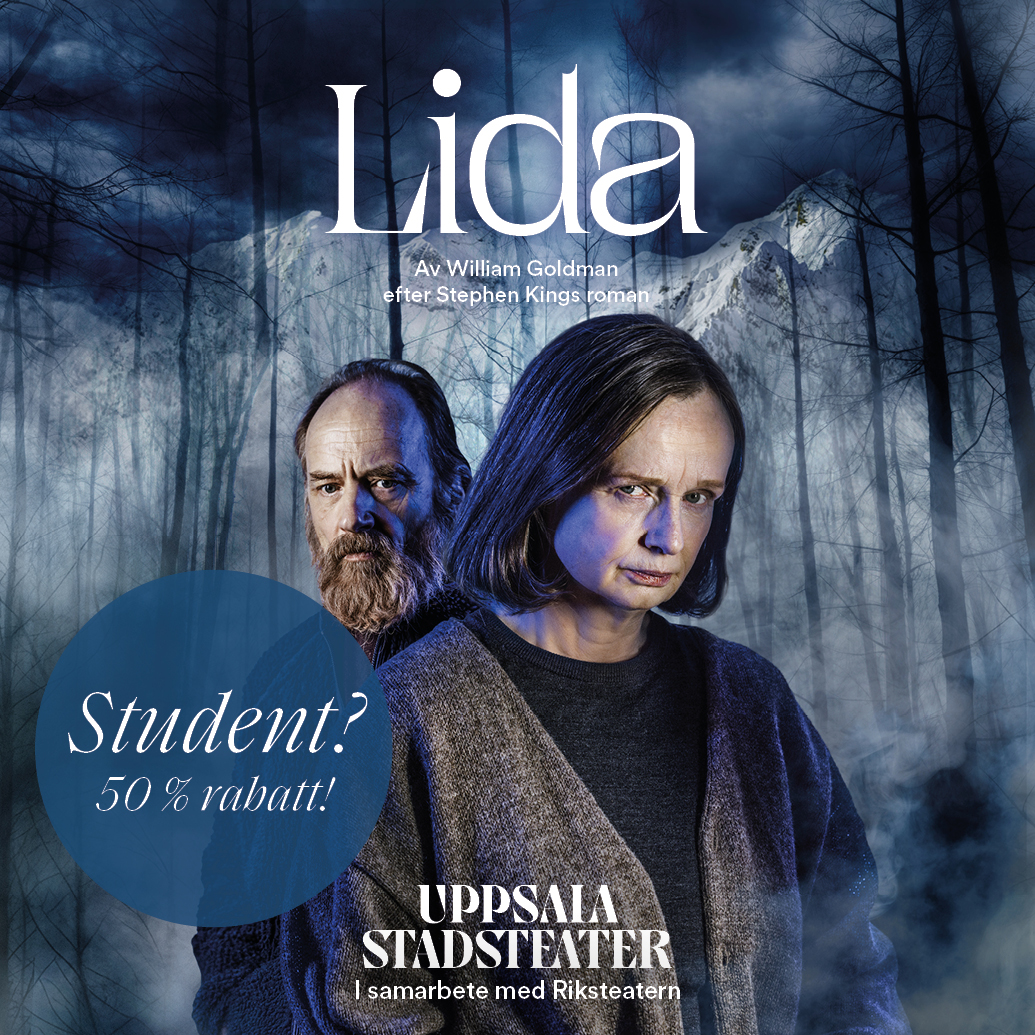
Waiting for 72 500 kronor from Uppsala University
– It feels like I have to fight the University’s Financial Division, when we should be trying to solve this together, says Maria.
Ergo meets Mexican master’s student Maria and her Swedish friend from the same Master’s programme, Linda. Together, they have tried to get Uppsala University s Financial Administration and Procurement Division (henceforth Financial Division), to find the 72 500 kronor that got lost in a transaction to Maria’s account.
– It’s been three months now. It feels like I have to fight the University’s Financial Division, when should be trying to solve this together, says Maria.
Maria was accepted at the Master’s Programme at Uppsala University last spring. In order to keep her place in the program, she was required to pay the tuition fee of 72 500 kronor for the autumn semester. She paid the fee with money she borrowed from her parents. Later she got a scholarship from the Mexican government. The scholarship was paid directly to Uppsala University, and the University were therefore going to refund her money.
shy;
– They asked me to fill out these forms, and I gave them my number to my Swedish account at Handelsbanken. They accepted and I got a mail where they said that they were going to refund me.
About two weeks later she received an email stating that the money had been reimbursed to her credit card. Maria was confused because she couldn’t see any money in her Handelsbanken account. When she asked the Financial Division, she was told that the money had been transferred to the same credit card that she had used for the fee payment. But the money wasn t in her Mexican account either. The Financial Division asked Maria to get in touch with her Mexican bank to ask about the money, which she did.
– My bank told me that I had paid with a debit card, and that they don’t accept this kind of transactions in Swedish crowns directly to debit cards. They also said that the bank from which the money was transferred has to trace the money.
The Financial Division at Uppsala University, who had been in contact with their bank Nordea, and Nets who made the payment, wrote to Maria and said that the her Mexican bank must do the tracking. They also asked for a written report from Maria s bank, stating that they did not receive the money.
She shows me the bank document she has sent to the Financial Division.
– My bank is saying they don’t accept this kind of transaction directly to debit cards. The transaction has to be done by this swift number. That’s the right way to do the transaction, and that’s very secure. But the University never asked me for this number.
Maria has repeatedly asked for a receipt for the transaction made by Uppsala University. The first proof of the transfer she received was a text written in Swedish.
– Maria asked me to translate it. It didn t even look like a receipt, it was like a part of a text, says Linda.
Maria and Linda tried to book a new meeting with the Financial Division, without success. They have also asked their own department for help. Their student counsellor made a call, trying to get a receipt.
– Then they sent a PDF with transactions. It still didn t look like a receipt, but at least it was the first time we got a PDF, says Linda.
After several weeks of e-mailing back and forth to different people in the Financial Division, Maria has been asked to do an investigation through her Mexican bank. Because the money was repaid in six instalments, each investigation must be done separately.
– My bank has said that there is no guarantee that they will find the money. In addition, each investigation costs around 1 000 kronor. If they had done the reimbursement to my Swedish account, none of this would have happened.
It was only when the Head of her department arranged a meeting that it became clear that Uppsala University should pay for the cost associated with starting the first investigation. Before that, it was suggested that Maria should pay.
Because of the lost money, Maria had to borrow more money from her parents to get by. The fact that the money is missing has not only affected her.
– It s a lot of money for my family. My mom has been to the bank every week trying to solve this.
Maria has spent a lot of time trying to get answers from the university and being in contact with her bank. She says it has taken a lot of focus from her studies and has made her feeling home sick. She thinks that the help she received from the Financial Division has been insufficient.
– They haven t kept me updated. If I don’t ask, I don’t get any information. I asked for another meeting and didn’t get any answer. When I’ve emailed one person, I have received an answer from another, says Maria.
Linda says that the Financial Division could have handled the whole situation in a better way.
– How can they put international students in this vulnerable position, especially when they want to increase the number of fee-paying students?
One week after the interview with Maria and Linda, Ergo calls Edrun Eriksson, head of unit at Financial Administration and Procurement Division, Ledger Office. She says they made the refund and explains how it was done.
– When we make a refund, we do not fill out account information, we just click that we want to refund and the money is send to the same card. The reason we do this is because Riksgälden [the Swedish National Debt Office] recommends that the money should be repaid the same way we received them, says Edrun Eriksson.
So why was she asked to fill out a form where she gave her the number to her Handelsbanken account?
– I can’t give you an answer to that. The University’s regulations and banks state that the money should be repaid the same way we receive them.
The receipt-document that you have sent to her doesn’t really look like a receipt, why does it look like that?
– I don’t know which document you refer to. We have an email from Nets (the card manager) that proves we’ve sent the money to her Visa-card and when the money arrived.
Edrun Eriksson says that they have been in contact with their bank and card manager. Both of them claim that the complaint must come from the student s bank.
– We’ve said that we will help her with the first fee. And from what I’ve heard she has filed the first complaint.
What happens if the money isn’t found through this investigation, or complaint?
– It s hard to speculate about it now. It all depends on Visa’s response. But I find it hard to believe that Visa will not find them.
72 500 kronor is a lot of money. If they can t find them, do you have any insurance that can cover her loss?
– It’s too early to give an answer to that. But we will help her in every way we can, of course.
I’ve read the e-mails between the student and the Financial Division. She has repeatedly been mailing you to get answers. She has also tried to book meetings with you. Had it not been easier if you just met and tried to help the student?
– We ve met her and have tried to support her in every way. Her department has also been helpful. A lot of people from the university have supported her in this matter.
When Ergo calls Maria back, she says that she had a meeting with the Financial Administratior at her department. This person has now taken over all contact with the Financial Division. Maria has been in contact with her bank and started the first investigation.
– Right now, I am waiting for my banks response. The last thing I sent them was the PDF where the transactions to my card were shown. I am just waiting for my bank to accept this PDF as an invoice. Hopefully they will be able to find my money.
The names of Maria and Linda have been changed to protect their privacy.
























